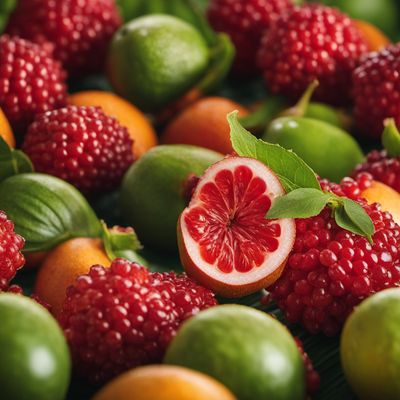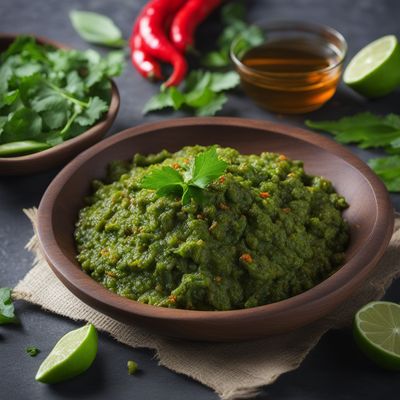
Ingredient
Carambolas
The Star of Tropical Delights: Carambolas Unveiled
Carambolas are small to medium-sized fruits with a distinctive star shape when sliced. They have a waxy, thin skin that is usually yellow or green, and their flesh is translucent and juicy. The taste of carambolas can range from sweet to tart, with a hint of citrus. The texture is crisp and crunchy, similar to that of a grape, and the fruit is often described as refreshing and slightly tangy.
Origins and history
Carambolas are native to Southeast Asia and are believed to have originated in Sri Lanka or Indonesia. They have a long history of cultivation in countries like India, Malaysia, and the Philippines. Carambolas were introduced to the Americas by Portuguese explorers in the 16th century and are now grown in tropical regions worldwide.
Nutritional information
Carambolas are low in calories and rich in vitamin C, fiber, and antioxidants. They also provide small amounts of vitamin A, potassium, and iron.
Allergens
Carambolas are generally considered safe for consumption and are not known to cause allergies. However, individuals with kidney problems should exercise caution due to the fruit's high oxalate content.
How to select
When selecting carambolas, look for fruits that are firm, glossy, and free from blemishes or bruises. The color should be vibrant, with a slight yellow or green hue depending on the variety. Avoid carambolas that are overly ripe or have soft spots.
Storage recommendations
Carambolas are best stored at room temperature until they ripen. Once ripe, they can be refrigerated for up to a week. To extend their shelf life, slice and freeze the fruit for later use.
How to produce
Carambolas can be grown in tropical or subtropical regions. They thrive in well-drained soil and require full sun exposure. The trees can be propagated from seeds or cuttings, and it takes about three to five years for them to bear fruit.
Preparation tips
To prepare carambolas, simply rinse them under cold water and pat dry. Remove any brown edges or blemishes, if present. The fruit can be enjoyed fresh as a snack, added to salads, used as a garnish, or juiced. When slicing carambolas, their star shape makes for an attractive presentation. They can also be cooked in various dishes, such as stir-fries or desserts.
Culinary uses
Carambolas are commonly used in fruit salads, smoothies, and tropical beverages. They can also be incorporated into savory dishes like seafood or poultry stir-fries for a tangy twist. Additionally, carambolas make a visually appealing garnish for desserts and cocktails.
Availability
Carambolas are commonly available in tropical regions such as Southeast Asia, India, Brazil, and the Caribbean. They are also cultivated in Florida and Hawaii in the United States.
More ingredients from this category » Browse all

Cashew apples
The Tropical Delight of Cashew Apples

Indian jujubes
The Sweet and Tangy Jewel

Babacos
Exotic Delight: Babacos

Ambarellas
The Tropical Delight

Purple mombins
The Vibrant Delight: Exploring the World of Purple Mombins

Malay pommarosas
The Exotic Delight: Malay Pommarosas - A Tropical Twist for Your Taste Buds

Natal plums
The Exotic Gems: Natal Plums

Pommarosas
The Vibrant Pommarosas: A Burst of Tropical Flavor

Bilimbis
Tropical Tang: Exploring the Unique Flavor of Bilimbis

Maprangs
The Exotic Tanginess of Maprangs

Aonlas
The Tangy Delight: Exploring the Unique Flavors of Aonlas

Dracontomelon duperreanum fruits
The Exotic Delight: Dracontomelon Fruits

